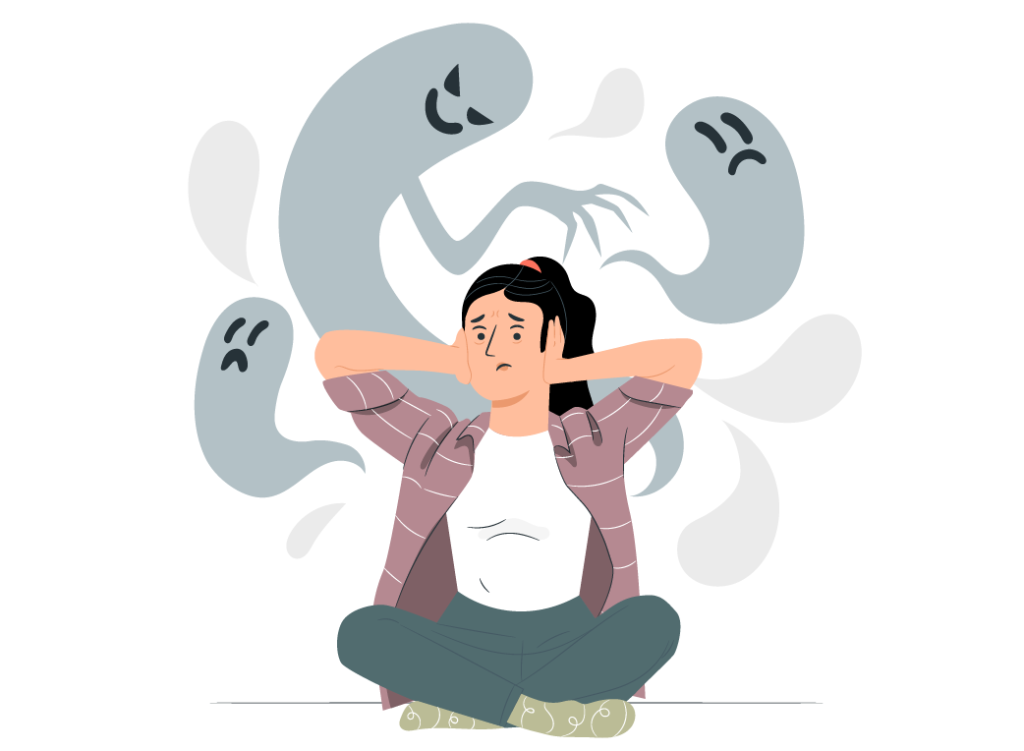Schizophrenia
“Finding hope in treating schizophrenia: with care, medication, and therapy, we unlock the path to healing, one step at a time.”
Schizophrenia
Schizophrenia is a chronic and severe mental illness characterized by distorted thoughts, abnormal behaviors, and impaired social functioning. Individuals with schizophrenia often experience hallucinations, delusions, and disorganized thinking, making it challenging to distinguish reality from fantasy. Effective treatment typically involves a combination of antipsychotic medications, therapy, and support services to manage symptoms and improve overall quality of life. Early intervention is crucial for better outcomes, emphasizing the importance of ongoing support from healthcare professionals, including psychiatrists.
Who is affected with Schizophrenia?
- Prevalence: Schizophrenia affects roughly 1.1 percent of the global population.
- Age of Onset: Typically diagnosed in individuals aged 16 to 25, schizophrenia often emerges during early adulthood.
- Hereditary Factors: Schizophrenia can have a hereditary component, often running in families.
- Gender Disparity: It primarily affects men, occurring 1.5 times more frequently in men than in women.
What are the causes and symptoms of Schizophrenia?
Causes of Schizophrenia:
- Genetics (hereditary)
- Environmental factors
- History of abuse or neglect
- Substance abuse, including alcohol and drugs
- High levels of stress
Symptoms of Schizophrenia:
- Hallucinations (seeing, hearing, touching, or smelling unreal things)
- Delusions (holding unusual opinions not supported by facts)
- Catatonic behavior (extreme agitation or immobility)
- Disorganized speech
Impaired ability to participate in daily activities - Loss of interest in life
- Odd or unusual behavior
- Mood disturbances, such as depression or mood swings
- Blunted emotions
What are the types of Schizophrenia?
Paranoid Type: Characterized by prominent delusions and hallucinations, but relatively preserved cognitive function and affect. Individuals may believe that they are being persecuted or conspired against.
Disorganized Type: Marked by disorganized speech and behavior, along with flat or inappropriate affect. Thought disorder is prominent, and individuals may have difficulty with daily functioning.
Catatonic Type: Features include extreme motor disturbances, such as rigidity or excessive, purposeless movement. Individuals may also exhibit echolalia (repeating others’ words) or echopraxia (mimicking others’ movements).
Undifferentiated Type: This category is used when the symptoms do not clearly fit into any of the above subtypes, but the criteria for schizophrenia are met.
Residual Type: Reserved for individuals who have had at least one episode of schizophrenia but are currently in a remission phase with mild symptoms or no active psychosis.
What is the treatment for Schizophrenia?
Medication: Antipsychotic medications are the primary treatment for managing symptoms of schizophrenia. These drugs help to control hallucinations, delusions, and other psychotic symptoms. Different types of antipsychotics may be prescribed based on individual responses and side effects.
Psychotherapy: Therapy sessions, such as cognitive behavioral therapy (CBT), can help individuals with schizophrenia better understand their illness, manage stress, and improve coping skills. Family therapy may also be beneficial in providing support and improving communication within the family unit.
Supportive Services: Access to supportive services, such as case management, vocational rehabilitation, and housing assistance, can help individuals with schizophrenia maintain stability and independence in their daily lives.
Hospitalization: In severe cases or during acute psychotic episodes, hospitalization may be necessary to ensure safety and provide intensive treatment and stabilization.
Long-term Management: Schizophrenia is a chronic condition that requires long-term management. It’s essential for individuals with schizophrenia to stay engaged in treatment, attend regular follow-up appointments, and communicate openly with psychiatrists about any concerns or changes in symptoms.
Book Your Appointment with Dr. Nishtha Dalwani, a trusted psychiatrist in Mumbai known for her compassionate approach and dedication to mental health care. With extensive experience and expertise, Dr. Dalwani provides personalized treatment plans to help patients achieve mental well-being. Take the first step towards better mental health and schedule your appointment today.

